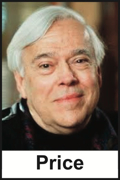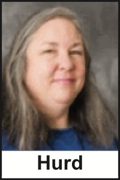Rascals case in brief
In the beginning, in 1989, more than 90 children at the Little Rascals Day Care Center in Edenton, North Carolina, accused a total of 20 adults with 429 instances of sexual abuse over a three-year period. It may have all begun with one parent’s complaint about punishment given her child.
Among the alleged perpetrators: the sheriff and mayor. But prosecutors would charge only Robin Byrum, Darlene Harris, Elizabeth “Betsy” Kelly, Robert “Bob” Kelly, Willard Scott Privott, Shelley Stone and Dawn Wilson – the Edenton 7.
Along with sodomy and beatings, allegations included a baby killed with a handgun, a child being hung upside down from a tree and being set on fire and countless other fantastic incidents involving spaceships, hot air balloons, pirate ships and trained sharks.
By the time prosecutors dropped the last charges in 1997, Little Rascals had become North Carolina’s longest and most costly criminal trial. Prosecutors kept defendants jailed in hopes at least one would turn against their supposed co-conspirators. Remarkably, none did. Another shameful record: Five defendants had to wait longer to face their accusers in court than anyone else in North Carolina history.
Between 1991 and 1997, Ofra Bikel produced three extraordinary episodes on the Little Rascals case for the PBS series “Frontline.” Although “Innocence Lost” did not deter prosecutors, it exposed their tactics and fostered nationwide skepticism and dismay.
With each passing year, the absurdity of the Little Rascals charges has become more obvious. But no admission of error has ever come from prosecutors, police, interviewers or parents. This site is devoted to the issues raised by this case.
On Facebook
Click for earlier Facebook posts archived on this site
Click to go to
Today’s random selection from the Little Rascals Day Care archives….
Click for earlier Facebook posts archived on this site
Click to go to
Today’s random selection from the Little Rascals Day Care archives….
‘Overwhelming power’ in the worst possible hands
Dec. 23, 2011
 “Many appalling results of the recovered-memory movement of the 1970s and ’80s arose from … unexamined views of memory – occurrences like the false accusations of employees of children’s care centers… Such fantasies have often been encouraged as reliable memories by doctrinaire therapists and have sometimes resulted in prison sentences and ruined lives for innocent fathers, mothers, kin, teachers and devoted caretakers.
“Many appalling results of the recovered-memory movement of the 1970s and ’80s arose from … unexamined views of memory – occurrences like the false accusations of employees of children’s care centers… Such fantasies have often been encouraged as reliable memories by doctrinaire therapists and have sometimes resulted in prison sentences and ruined lives for innocent fathers, mothers, kin, teachers and devoted caretakers.
“The documentary films made by Ofra Bikel … are meticulous and frightening accounts of such fantasies and their overwhelming power in the hands of the cruelest, most self-deluded and most easily panicked among us.”
– From “Ardent Spirits” by the late Reynolds Price (2009)
Prosecution waited futilely for defendant to roll
July 4, 2012
“The state has done me wrong and imprisoned me for over six years,” Bob Kelly said in 1995 after his conviction was overturned and prosecutors were deciding whether to try him again.
“They want me to take a plea so they can save face. It will never happen.”
Oh, how the prosecution dreamed of at least one of the Edenton Seven rolling over, pointing a finger at a fellow defendant.
Never happened, despite their being held under vague charges for endless months – and later offered every inducement short of a trip to Disney World.
Even when Betsy Kelly and Scott Privott took pleas to reduce their prison time, they continued to insist on their innocence.
There’s painfully little to admire in the story of the Little Rascals case, but the defendants’ strength under pressure was extraordinary.
Board couldn’t see Betsy Kelly ‘minus her publicity’
Sept. 13, 2013
“I am urging you to treat Elizabeth Kelly as you would treat anyone else with the same case file. I am asking you to demonstrate that we are all ‘equal under the law.’ Any other inmate with the same sentence and clean record would have been eligible for parole the minute she walked through the gates of the prison…. I am appealing to you not to withhold that which she would otherwise likely receive — minus her publicity, minus the rhetoric of politicians. I am imploring you not to deal more strictly with her than with others simply because she is Elizabeth Kelly.”
– From a letter to the North Carolina Parole Commission by Jane W. Duffield of Raleigh (April 5, 1994)
The Parole Commission proved unable or unwilling to consider Betsy Kelly’s case “minus her publicity, minus the rhetoric of politicians.” Bill Hart, vengeful over her unwavering insistence that she was innocent, reneged on a plea agreement not to contest her release, and the Parole Commission obediently sent her back for seven more months of wrongful imprisonment.
UNCG professor showed no tolerance for skepticism
 Feb. 13, 2012
Feb. 13, 2012
“It is evident that, although mistakes were made in the handling of the (Little Rascals) case, these children definitely were sexually abused by one or more individuals at the day care center. To suggest otherwise is to revictimize these smallest victims.
“As a professor of social work at UNCG whose specialty is child abuse, I would like the public to be aware that research has shown that 97-99 out of 100 children who report that they have been sexually abused are telling the truth. When a child tells you that an unauthorized adult is ‘playing doctor’ with him/her, it is highly likely that he/she is describing some sort of abuse.
“If you do not believe the child, you become part of the victimization of that child. If you believe that detection and prosecution of child abuse cases are witch hunts, then you protect child molesters and allow them to continue to traumatize children. I cannot imagine that the responsible people of this state want to put themselves on the side of criminals who abuse children.”
Elisabeth Porter Hurd, Greensboro
– From a letter to the editor of the Greensboro News & Record, June 9, 1997
Does Dr. Hurd still believe that the Little Rascals children “definitely were sexually abused”? And that to doubt the prosecution’s case was to “protect child molesters and allow them to continue to traumatize children”?
Last week I asked Dr. Hurd whether she might have changed her mind – so far no response.











0 CommentsComment on Facebook